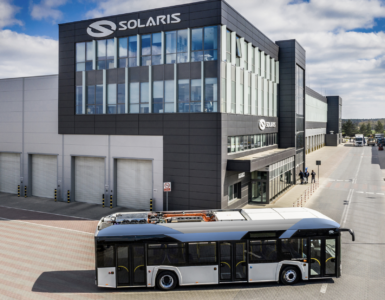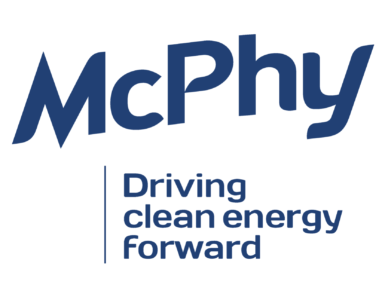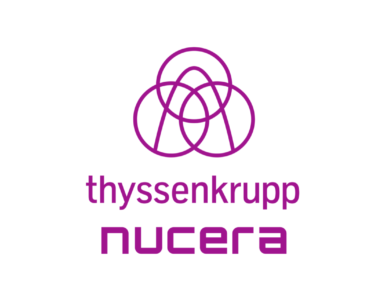Hydrogen powered transport: Hong Kong lags in adoption but can still lead in innovation, says refuelling-station investor.
Hong Kong trails other cities in the adoption of hydrogen fuel for road transport, including public buses, but can still become an innovator in using the technology to combat climate change, according to the investor funding the construction of the city’s first hydrogen refuelling station.
David An, chairman of Hans Energy, noting that the city has some of the world’s most stringent quality requirements for buses, said:
Hong Kong has the potential to be a leader in hydrogen utilisation, as we can afford to adopt the best in the world.
“[Mainland] China has many hydrogen buses, but they are completely different from ours, which are built to European Union standards.”
Hydrogen fuel enjoys strong policy support in Hong Kong, where transport accounts for a fifth of carbon emissions. The government’s 2023-24 budget provides HK$200 million (US$25.6 million) for trials of double-decker buses and heavy vehicles powered by hydrogen fuel cells, which generate zero roadside emissions. And Chief Executive John Lee Ka-chiu said last October that the government will formulate long-term strategies for the application of hydrogen energy in road transport by 2025.
The city aims to halve carbon emissions by 2035, compared with 2005 levels, and achieve carbon neutrality by 2050.
Early last month, Hans said its pilot project to build Hong Kong’s first hydrogen refuelling station – at a Citybus depot in West Kowloon – has received an “agreement in principle” from the government. The company originally hoped the station would be operating in the first quarter of 2023, but now expects construction to be finished around September.
Hong Kong-listed Hans, which provides oil and petrochemical storage and trades the fuel in southern Guangdong, diversified into transport in 2020 by investing in Bravo, in which it holds a 15.56 per cent stake. Bravo owns Citybus, which operates over 1,700 buses in Hong Kong under the Citybus and New World First Bus networks, which are due to merge next month.
Hong Kong-based private-equity firm Templewater owns 84 per cent of Bravo, while UK public transport operator Ascendal Group has around 0.5 per cent.
CIMC Hydrogen Energy Technology (Beijing), a subsidiary of Hong Kong-listed CIMC Enric Holdings, a maker of equipment for natural gas and hydrogen logistics, won a procurement tender to build the station, said Hans CEO Yang Dong.
Last June, Citybus took delivery of “the world’s first tri-axle hydrogen double-decker” bus, custom designed by Wisdom (Fujian) Motor, a maker of battery-and hydrogen-powered electric vehicles. Dual-axle hydrogen double-deckers have been deployed in various UK cities since early 2021.
Tri-axle buses, with one set of front wheels and two sets of rear wheels, one of which aids in steering, are needed to negotiate Hong Kong Island’s narrow, winding and steep roads while carrying heavy passenger loads, Yang said.
Dong Yang CEO said:
Hong Kong’s mass transit market can absorb more costly, higher-end equipment and can adopt the best quality specifications in the world.
The city cannot simply import buses that are used in other markets, because its long humid, hot season and its narrow, winding roads necessitate a lot of customisation.
Wisdom, established in 2019 by Su Liqian, a former senior manager at Xiamen-based King Long United Automotive Industry, is majority-owned by Templewater. Canada’s Ballard Power Systems, which supplies key fuel cell components to Wisdom, is also an investor.
While Citybus expects to deploy its pilot hydrogen bus in the fourth quarter, regulation could affect the timing, because it is currently illegal to use highly flammable liquid hydrogen as a fuel or to transport it via roads.
The government has established an interdepartmental working group to study various issues before enacting relevant legislation and announcing technical specifications.
Hans has signed letters of intent with multiple potential hydrogen suppliers, including mainland oil refiners that produce hydrogen as a by-product, which can be trucked to Hong Kong, Yang said.
The company does not rule out sourcing hydrogen from Hong Kong and China Gas (Towngas), adding that cost competitiveness is a key consideration, Yang said.
Towngas last month said its feasibility study had shown that hydrogen can be extracted safely from its underground pipeline network to supply to Hong Kong customers, thus avoiding the risks associated with road traffic and saving transport costs.
Meanwhile, Hans is in talks with European and North American firms that provide hydrogen storage and refuelling technology about producing equipment that would reduce the footprint of refuelling stations and enhance refuelling efficiency, Yang said.
“The government wants more innovation in Hong Kong, which is also what we need,” he said. “If we can develop space-saving hydrogen storage and refuelling facilities, there is export potential to other crowded cities.”
Approval procedures were responsible for pushing back the timeline for the refuelling station from the first quarter to September, according to Yang. The company had to wait until the government gave its approval-in-principle for construction before signing contracts with the refuelling station’s equipment supplier and builder, he said
READ the latest news shaping the hydrogen market at Hydrogen Central
Hydrogen-powered transport: Hong Kong lags in adoption but can still lead in innovation, says refuelling-station investor, June 20, 2023









